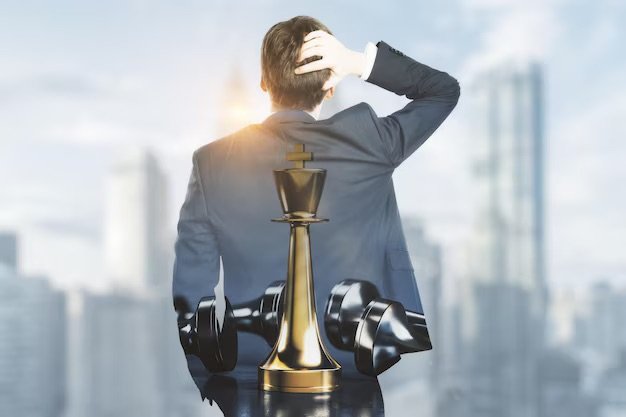Editor-in-Chief: SHAPOUR-T
Most people believe that governments, politicians, and international organizations hold the real power in the world. However, the truth is quite different. Behind the scenes, a network of ultra-wealthy individuals and influential families secretly control the global economy, politics, and even wars, all without appearing in the media or holding official political positions.
1. How Do Hidden Billionaires Control the Global Economy?
A) Dominance Over Central Banks and Financial Policies
One of the primary tools of these elites is their control over central banks, which manage money supply, interest rates, and global economic policies.
- The U.S. Federal Reserve, while appearing to be a government institution, is in fact controlled by a few powerful private banks. Decisions made by the Fed influence global financial markets.
- The European Central Bank (ECB) and other central banks in developed nations are also heavily influenced by these financial networks.
- During financial crises (such as the 2008 collapse), these banks bailed out corporations and private banks, while ordinary citizens suffered economic hardships.
B) Control Over Multinational Corporations and Key Industries
Through massive investment firms like BlackRock, Vanguard, and State Street, these elites own significant shares in technology, oil, military, pharmaceutical, and media companies.
- Tech giants such as Google, Apple, Amazon, Microsoft, Facebook, and Tesla are all influenced by these financial entities.
- Oil companies and military-industrial corporations such as ExxonMobil, Lockheed Martin, and Boeing also depend on these powerful investors.
- Pharmaceutical corporations shape global healthcare policies and vaccine distribution.
C) Controlling the Media and Public Opinion
Most mainstream media outlets (CNN, BBC, The New York Times, Fox News, Bloomberg, Reuters) are owned by the same financial elite.
- These media platforms control narratives, manipulate public opinion, and shape global events.
- Wars, economic crashes, and even pandemics are framed in ways that benefit these hidden power groups.
D) Secret Groups and Global Decision-Making Institutions
Global decisions are not made by elected officials but rather in exclusive meetings among elite groups.
- Bilderberg Group: An annual gathering of financial and political elites where global policies are shaped.
- World Economic Forum (WEF) in Davos: A summit where business and political leaders discuss future economic directions.
- Council on Foreign Relations (CFR) and the Trilateral Commission: Think tanks that influence international geopolitical and economic strategies.
2. China: A Rising Power Challenging Western Financial Hegemony
Over the past few decades, China has transformed from an isolated communist nation into the world’s second-largest economy. But how did it achieve this, and can it challenge Western financial dominance?
A) China’s Economic Rise: From Poverty to Global Power
In the 1970s, China was a poor and closed economy, but through economic reforms and foreign investments, it experienced rapid growth.
- Deng Xiaoping’s “Open Door Policy” in the 1980s turned China into the world’s manufacturing hub.
- Western corporations outsourced production to China, reducing costs and increasing profits.
- China attracted billions in foreign investments and used this capital to build massive infrastructure projects.
B) China’s Independent Financial System and the Threat to the Dollar
Unlike many nations, China is not dependent on Western banks and fully controls its own banking system.
- Unlike the U.S. Federal Reserve and European Central Bank, Chinese banks are not controlled by Western financial elites.
- The Digital Yuan (CBDC) is being developed as a potential alternative to the U.S. dollar in global trade.
- China’s Cross-Border Interbank Payment System (CIPS) serves as an alternative to SWIFT, which is dominated by Western financial institutions.
C) The “Belt and Road Initiative”: China’s Economic Empire
China’s Belt and Road Initiative (BRI) is a multi-trillion-dollar project investing in infrastructure across developing nations.
- Many countries are becoming economically dependent on China through these investments.
- This economic influence strengthens China’s geopolitical position.
D) China’s Strategic Alliances Against Western Dominance
China is collaborating with Russia, Iran, India, and other independent nations to establish a new financial order outside Western control.
- Increasing trade in local currencies instead of the U.S. dollar.
- Signing strategic agreements with countries resisting Western financial influence.
- Cooperating with BRICS nations (Brazil, Russia, India, China, South Africa) to challenge Western dominance.
3. Europe: A Middle Player or a U.S. Ally?
A) Europe’s Economic Dependence on the U.S.
- The European Central Bank (ECB) is influenced by U.S. financial elites and the Federal Reserve.
- Many major European corporations are owned by American investment firms.
B) Europe’s Efforts to Gain Independence
- The EU is trying to reduce its dependence on the U.S. dollar by introducing a digital euro.
- Some European nations, like Germany and France, are seeking stronger ties with China and Russia.
C) The Future of Europe: Sticking with the U.S. or Aligning with China?
Europe is at a crossroads:
- Continue aligning with the U.S. and Western financial elites.
- Strengthen partnerships with China and build a more independent economy.
Conclusion: What Does the Future Hold for Global Power?
While hidden billionaires still control the global financial system, China is creating a new financial order that could challenge this dominance. Europe remains uncertain about its role in this power struggle.
Will China succeed in breaking Western financial dominance, or will the hidden elites maintain their control? Only time will tell.

 English
English



























































